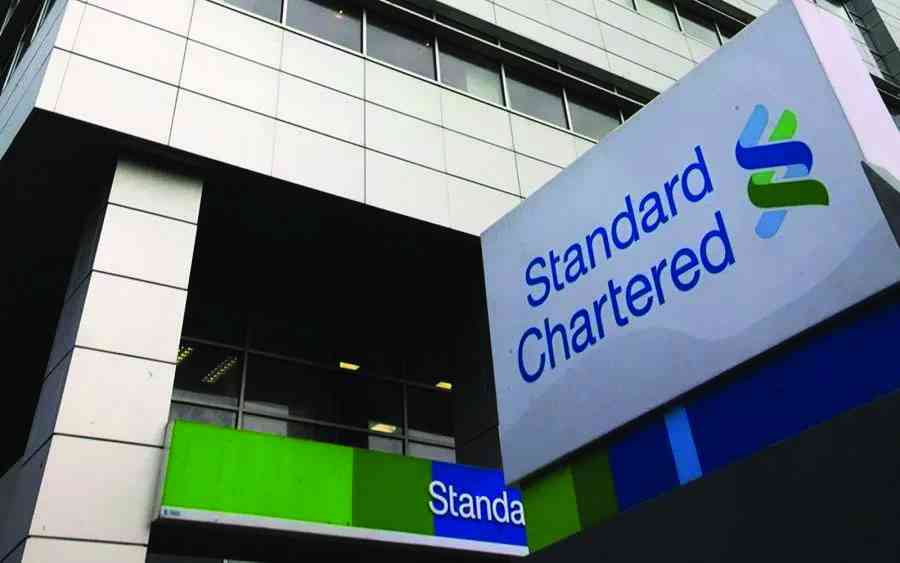
IN the ever-evolving realm of global investment, the robust emergence of real estate as a dominant force has rewritten the narrative of wealth management.
Once confined to the elite echelons of society, the democratisation of real estate investment through vehicles like Real Estate Investment Trusts (REITs) has ushered in a new era of accessibility for a broader spectrum of investors.
However, while the global real estate market garners attention, this investment avenue takes on a particularly intriguing hue within the African context.
With its kaleidoscopic economies, burgeoning populations, and rapid urbanisation, Africa emerges as a tableau ripe with promise for real estate investors.
Yet, like any investment endeavour, the terrain is rife with challenges and nuances that demand meticulous consideration. In this exegesis, we embark on a profound exploration of real estate investment dynamics within the African crucible, with a discerning focus on Zimbabwe.
We unravel its potential, navigate its challenges, and juxtapose its landscape against its regional counterparts.
Africa, the cradle of humanity, unfurls as a continent of unparalleled opportunity, marked by untapped reservoirs of resources and a burgeoning demographic bulge.
Over the past decade, the continent has witnessed robust economic growth, outstripping the languor of many developed economies. This crescendo, coupled with the relentless tide of urbanisation, has catalysed an insatiable demand for real estate across myriad sectors, be it residential, commercial, or industrial.
- Revisiting Majaivana’s last show… ‘We made huge losses’
- Edutainment mix: The nexus of music and cultural identity
- ChiTown acting mayor blocks election
- Promoter Mdu 3D defends foreigners 30 minute set
Keep Reading
Chief among the catalysts propelling real estate investment in Africa is the inexorable march of urbanisation. Rural denizens gravitate towards urban epicentres in quest of livelihoods and improved living standards, and the demand for housing and infrastructure surges.
This, in turn, unveils a pantheon of lucrative opportunities for investors to capitalise on the burgeoning need for residential and commercial edifices.
Moreover, the burgeoning ranks of the middle class further stoked the flames of demand, especially within the residential enclave.
Yet another propulsive force is the infrastructural metamorphosis sweeping across the continent. Governments and private enterprises are funnelling copious investments into infrastructural juggernauts, spanning transportation arteries, energy grids, and telecommunication conduits. These pivotal developments embellish the urban tapestry and galvanise demand for strategically located commercial and industrial parcels.
Furthermore, the ascendance of technology and innovation is a harbinger of transformative change in Africa's real estate milieu.
From cutting-edge property technology (Protech) solutions to digitised platforms facilitating seamless property transactions, technology's imprimatur is omnipresent, streamlining processes and engendering transparency in the real estate ecosphere.
This digital alchemy not only augments accessibility for investors but also mitigates the vagaries associated with traditional property dealings.
Within the crucible of the African narrative, Zimbabwe emerges as a compelling microcosm for real estate investment. Despite contending with economic vicissitudes, including hyperinflation and political turbulence, Zimbabwe is a bastion of potential within the real estate pantheon.
Paramount among the drivers propelling real estate investment in Zimbabwe is its soaring urbanisation trajectory, which is among the most rapid on the continent.
Urban nuclei, such as Harare and Bulawayo continue to magnetise denizens from rural hinterlands, fuelling an insatiable appetite for residential and commercial real estate.
Moreover, Zimbabwe's youthful populace, burgeoning and pulsating, presents a fecund vista for real estate developers to cater to the domiciliary exigencies of urbanites.
In addition to demographic endowments, Zimbabwe's strategic geographic placement within Southern Africa amplifies its allure to investors.
As a veritable portal to regional markets, Zimbabwe beckons as an auspicious precinct for commercial and logistical ventures. With infrastructural ameliorations and trade-facilitating overtures, Zimbabwe is poised to metamorphose into a nexus of regional commerce, augmenting demand for real estate.
Furthermore, Zimbabwe's regulatory architecture has undergone a metamorphosis recently, with reforms crafted to ensnare foreign investment.
Amendments to the Indigenisation and Empowerment Act and strides towards improving ease of doing business have coalesced to fashion a more hospitable ambience for real estate investment.
Additionally, governmental overtures, including fiscal incentives and investment safeguards, have been orchestrated to kindle participation in the real estate realm.
Notwithstanding the allure of real estate investment in Africa, including Zimbabwe, the landscape is strewn with pitfalls and exigencies that necessitate sagacious navigation.
Chief among these tribulations is the dearth of adequate infrastructure and amenities in urban enclaves. Dilapidated thoroughfares, deficient utilities, and constrained access to financing act as fetters, impeding the gestation of real estate ventures and imperilling investors.
Moreover, political and regulatory vicissitudes loom large in certain African fiefdoms, Zimbabwe not spared. The uncertainty enveloping property rights, land tenure regimes, and regulatory paradigms can dissuade foreign investors and hobble the real estate sector's ascendancy.
Mitigating these hurdles demands a symphony of endeavours from governmental fiefdoms, regulatory watchdogs, and industry cognoscenti to orchestrate an enabling milieu for investment.
Another consideration bedevilling African real estate investors is the spectre of currency volatility and exchange rate vagaries. Nations such as Zimbabwe, beleaguered by currency convulsions and hyperinflationary paroxysms in yesteryears, pose nettlesome challenges for investors seeking stable returns.
While adopting the US dollar has imparted a veneer of stability to Zimbabwe's property valuations, it exposes investors to exogenous jolts and currency debasement risks.
Moreover, opacity in property market dynamics and paucity of data bedevil many African polities, rendering thorough due diligence and risk assessment a Sisyphean endeavour for investors.
Enhancing transparency and fortifying data aggregation mechanisms assume paramount importance in buttressing investor confidence and catalysing capital inflows into the real estate ambit.
A salient query over real estate investment in Zimbabwe is whether the predilection for the US dollar has imparted an overstated sheen to property valuations vis-à-vis its regional counterparts.
Whilst Zimbabwe has weathered currency tumult in bygone epochs, the embrace of the US dollar as a primary legal tender has proffered a semblance of equilibrium to the property sphere.
Conversely, contiguous nations such as Zambia and Mozambique tether to their native currency regimes, ensnared in the web of inflationary caprices and currency debasement gyrations.
This mercurial flux can indubitably impinge upon property valuations and investor returns, burnishing Zimbabwe's status as a relatively stable investment haven within the regional precincts.
Furthermore, Zimbabwe's strategic egocentricity within Southern Africa and its potential as a regional trade emporium demarcate it from its neighbours.
While other locales may proffer loftier yields or burgeon with growth potential, Zimbabwe's connectivity and influence to regional markets proffer an enduring value proposition for real estate investors.
In summation, real estate investment in Africa, Zimbabwe notwithstanding, stands as an ennobling odyssey for investors in quest of diversification and longue durée growth vistas.
With urbanisation, infrastructural bequests, and demographic metamorphoses galvanising demand for real estate, the continent emerges as a compelling crucible for investment.
Whilst hurdles such as infrastructural lacunae, regulatory quagmires, and currency vicissitudes loom large, proactive stratagems by governmental fiefdoms and industry titans hold the key to ameliorating these impediments and unlocking the full potential of the real estate diadem.
Moreover, Zimbabwe's strategic locus, propitious for regulatory overhauls, and the stable mantle of the US dollar propel it to the forefront as an alluring investment epicentre within the African continuum.
As investors gaze beyond the staid bastions of traditional asset classes, real estate emerges as a lighthouse of prudence, offering bounteous returns, portfolio diversification, and tangible assets.
By harnessing the latent potential of real estate investment in Africa, investors can synchronise their portfolios with the continent's upward trajectory and catalyse its sustainable evolution.
Juru is the chairperson of the REIT Association of Zimbabwe.










